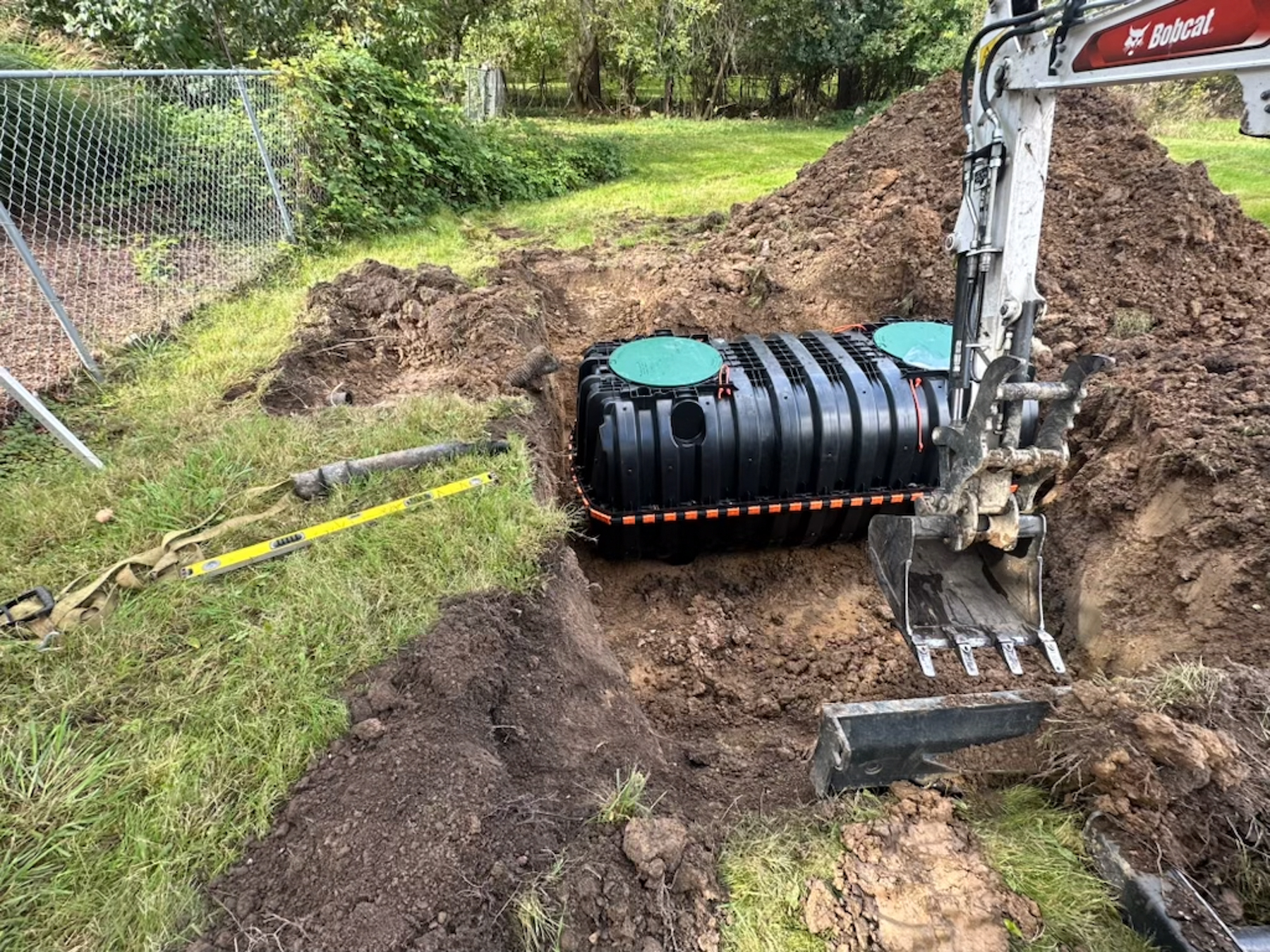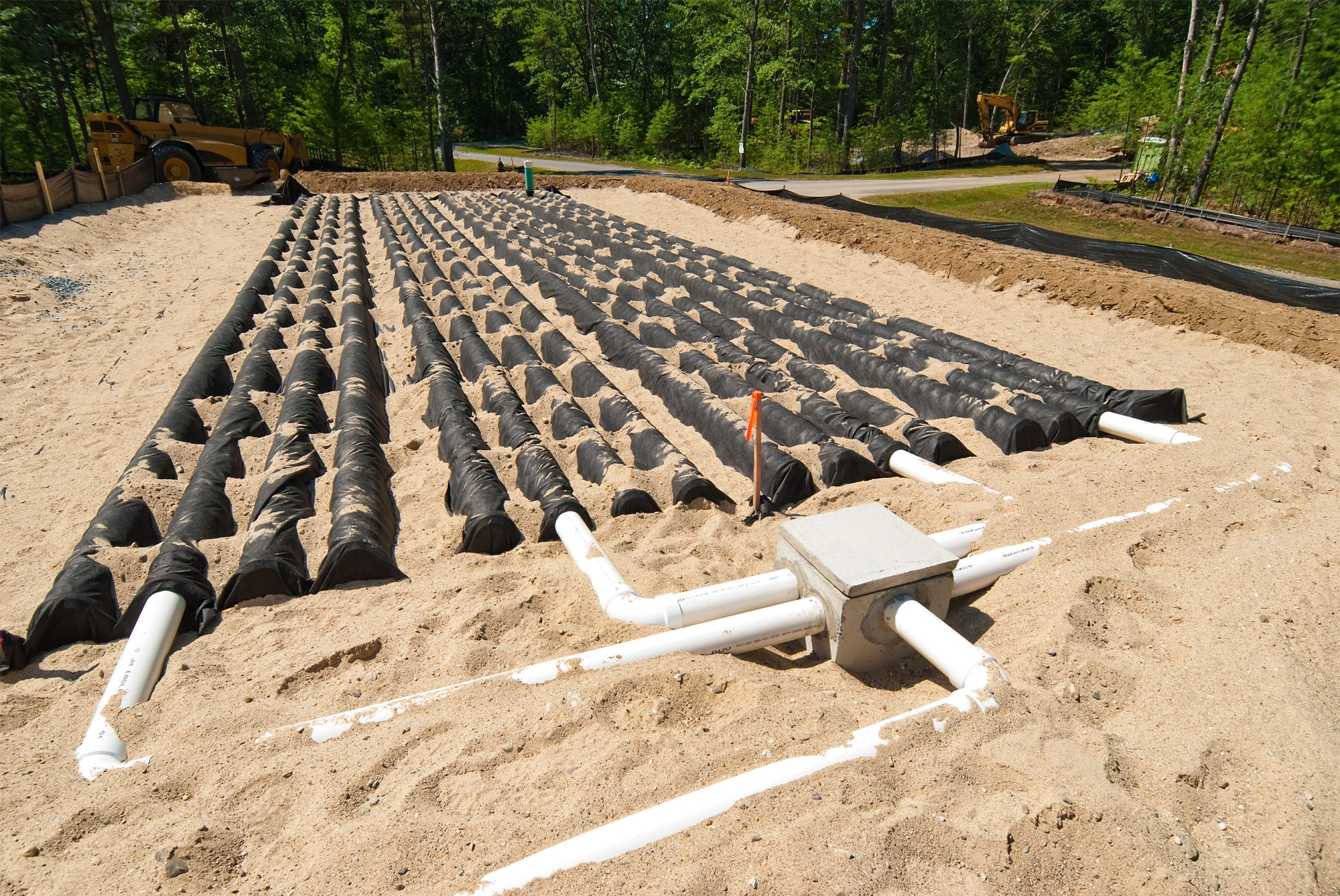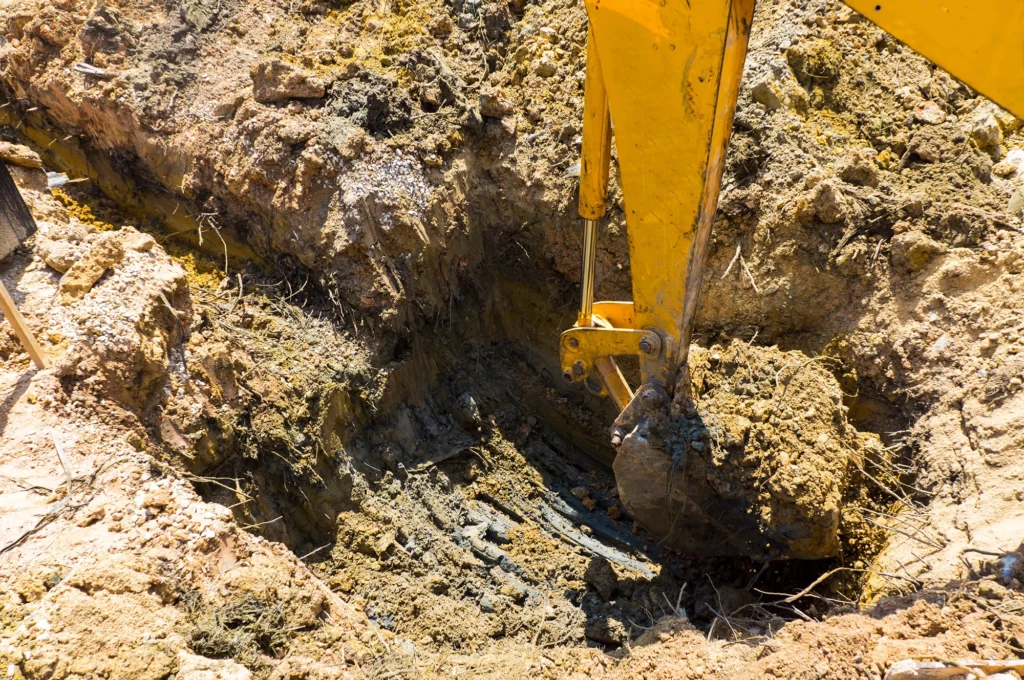A well-maintained septic system is out of sight, out of mind, working quietly underground to manage your household waste.
But these systems have their limits. Knowing how long your septic system is likely to last and what affects its lifespan and performance is your first step to making the right choices about your system.
This guide will explore the typical lifespan of a septic system and its parts, the signs that necessitate repair or replacement, and why it pays to intervene… fast!
The Lifespan of Your Septic System
Typically, a well-maintained septic system can last for decades, depending on how much it’s used, how well you look after it, and surrounding environmental factors (like poor soil condition and extensive root growth around the system).
Key to your system’s longevity is care and regular maintenance. Here are some tips to remember:
- Pump the tank every 3-5 years (depending on usage and size)
- Avoid flushing harmful materials like chemicals, grease, and non-biodegradable items
- Monitor your water usage to prevent overloading the system
- Don’t park or drive over your drain field
- Landscape carefully to encourage proper drainage and limit root systems growing around the drain field
- Be proactive about any septic or drain field problem that arises

Septic Tank Lifespan
Depending on the material—concrete, fiberglass, or plastic—a septic tank’s lifespan varies. Concrete tanks can last up to 40 years, whereas fiberglass and plastic tanks often have a slightly shorter lifespan. Signs of aging include cracks, leaks, or surface damage. Keep an eye out for these signs—early detection can prevent major issues down the road!
Drain Field Lifespan
The septic drain field, where the partially clarified wastewater gets dispersed, lasts anywhere from 20 to 30 years as well. Its lifespan can be shortened by poor soil drainage, tree root interference, and large volumes of wastewater treated. Signs of drain field problems include soggy ground or foul odors.
How to Tell if Your Drain Field is Failing
Pipes and Other Components’ Lifespan
While your pipes can last several decades, they are prone to clogging, root intrusion, and corrosion. Pipes, baffles, and filters in your system should be routinely checked by a septic professional.

Warning Signs of Septic System Failure
A failing septic system is not only a nuisance but can also pose environmental and health risks.
Some signs of a bad drain field that you can notice right away are slow drains and toilets, foul odors, overly lush grass over the drain field, and unexplained wet areas in the yard. Ignoring these signs can lead to complete breakdown of your system and even contamination problems.
5 Ways to Tell if Your Drain Field is Failing
Why do drain fields fail?
Drain field failure in septic systems can happen for a few different reasons. The three most common culprits are biomat buildup, organic failure, and physical damage. When biomat (a thick sludge produced by bacteria) accumulates, it blocks the flow of wastewater effluent, pushing it to the surface and preventing proper soil absorption. Organic failure happens when the septic tank doesn’t properly filter organic material, leading to low-quality effluent and organic waste buildup in the drain field. Often driving or excessive foot traffic over the drain field cause physical damage by crushing your pipes and compacting soil, which hinders effluent flow and causes puddles—ultimately leading to a failed drain field.
Repair vs. Replacement Scenarios
When to Repair Your Septic / Drain Field
Minor issues like clogs or blockages. If the problems are minor, such as small pipe blockages, partial clogs, or manageable biomat accumulation, repairs are usually sufficient. Timely maintenance can prevent these minor issues from escalating.
Early stage failures. If issues are detected early, such as slight inefficiencies in drainage or minor soil compaction, remedial actions like jetting the lines, adding soil fracturing, or biological additives might restore functionality.
Cost-effective solutions. When the cost of repair is significantly lower than replacement and the rest of the system is in good condition, repair is often the better choice.
System age and condition. If the system is relatively new or has been well-maintained, repairs can extend its life significantly and can be a smarter choice than full replacement/upgrading your current system.
When to Replace Your Septic / Drain Field
More significant problems, like tank cracks or drain field failure, may require a complete system replacement. Often, replacement is necessary when the septic system hasn’t been given proper attention and maintenance and minor issues have gone unnoticed for too long.
Extensive Damage or Failure. If the drain field is extensively damaged or has completely failed (evidenced by persistent puddling, sewage backups, foul odors, and other symptoms), replacement is most likely necessary.
An Old Septic System. Older systems that are nearing the end of their expected lifespan (20-30 years) or don’t meet current efficiency, environmental, or health regulations should be replaced rather than repaired.
Ineffective Repairs. If previous repairs haven’t resolved the issues or the system frequently requires fixes, it might be more economical in the long run to replace it.
Unsuitable Soil Conditions. If the initial installation was done in poor or unsuitable soil conditions and continual problems arise, installing a new system in a different location or with a different design may be the best solution.
Do I need a permit to replace my drain field?
In most cases, you will need a permit to replace your drain field. Septic system regulations, including those for drain fields, are typically managed at the local level, so the specific requirements will vary depending on where you live.
In West Michigan, the standards and procedures for septic system management (including drain field replacement) are set by your county or township. Because of the permitting required and the expertise and heavy equipment needed, consider hiring a septic installation professional instead of going DIY.

Why It Pays to Intervene… Fast!
Address your septic system and drain field issues as soon as you notice the symptoms of failure.
This will not only prevent environmental damage like water pollution, but can save your home from unwanted surprises. And, early intervention can help you save on costs associated with major repairs or complete system failure.
Ignoring the signs of a clogged system or biomat buildup til it’s too late can leave septic system replacement as your only option.
Septic System Replacement Services in Grand Rapids, MI and Beyond
Top Notch Pros is a top-rated, trusted Michigan-based excavation company specializing in septic system installation in our West Michigan community for the past 15 years.
The installation of your septic system and drain field in Grand Rapids, MI requires expert excavation. With Top Notch, you can expect nothing less than the top.
How can we make your septic system installation easy?


